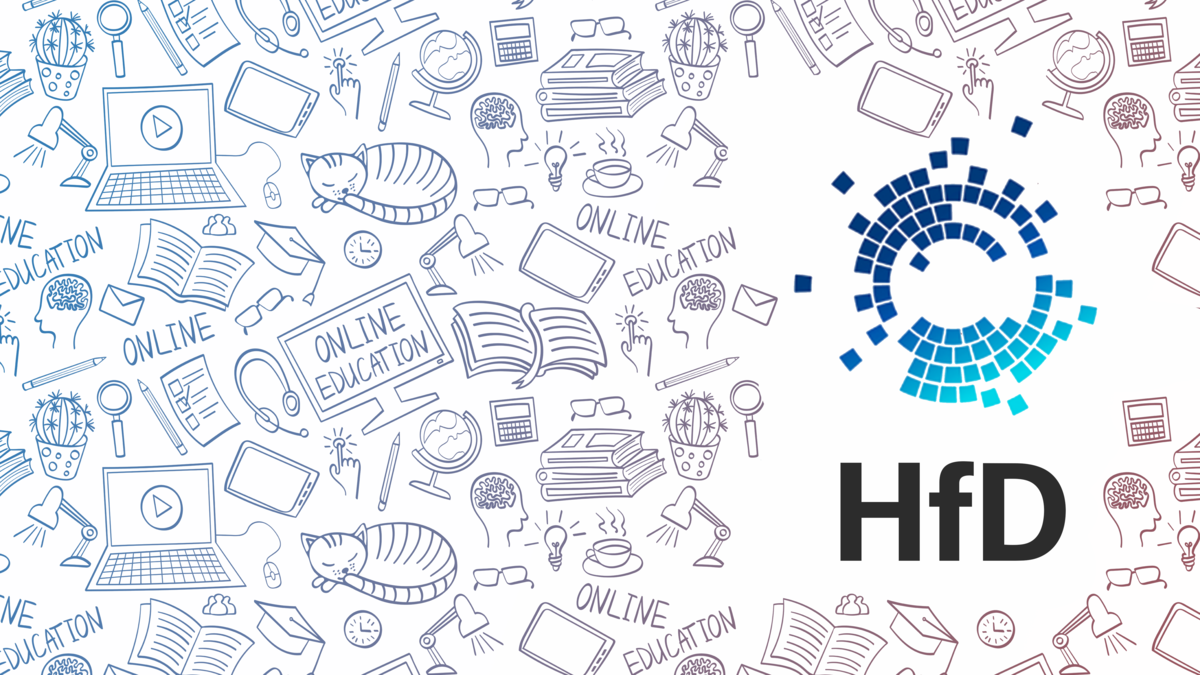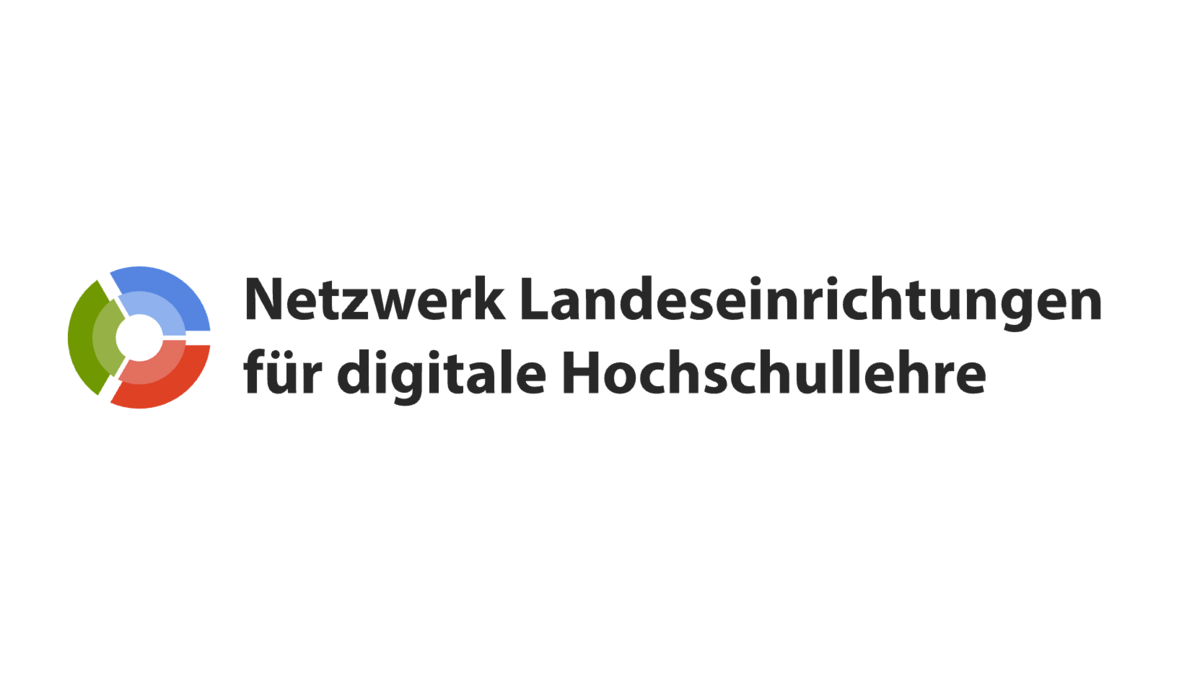Projects & Networks
The Digital Education team is involved in various projects and networks that centre around the topic of digital higher education, which we outline below.
Projects
Digital Transformation (2021-2024)
In the target agreements for 2021-2024, the state of Mecklenburg-Vorpommern and the state’s higher education institutions agreed to an extensive digitisation programme for the universities’ administrations, as well as for studies and teaching.
Project management Studies and Teaching: Dr. Jana Kiesendahl

Digital Transformation in Studies and Teaching
2021-2024
The following measures have been agreed for the package of measures ‘Studies and Teaching’:

1. Digital examinations
Laptops will be purchased for holding digital examinations at an e-Examination Centre (Ernst-Lohmeyer-Platz 6), where it will be possible to hold invigilated electronic examinations. Furthermore, there are plans to extend the use of the EvaExam examination software, which is able to evaluate examinations that are held either purely in digital formats or in part on paper in a (partially) automated fashion.

2. Teaching of skills required for digitisation
In order to teach skills required for digitisation, plans are being made and realised for an inter-university training programme, and a virtual media centre is being created to bundle the teaching and technical offers and responsibilities in the field of digital education.
Inter-university events

3. Equipping digital teaching and learning spaces
The central equipping of teaching and learning spaces has set an important focus on the provision of digital self-learning stations on campus. This requires rooms that are easily accessible for students and enable both individual and cooperative (in small groups) forms of working. The rooms should be similar to the carrels in the libraries, providing private areas with technology that enables digital participation.
In the future, hybrid formats will take on a more significant role in higher education and participating in conferences. Therefore, smooth-running technology that makes it possible for participants to take part online at no disadvantage, is an absolute must-have. That is why a number of seminar rooms will be equipped with modern hybrid technology. This not only includes ceiling microphones, which make spoken contributions from the students in the room clearly audible to those attending online, but also several screens (to enable members of teaching staff to see the online participants without having to turn around), high-quality displays etc.
In order to be able to produce high-quality digital content such as teaching videos, podcasts, explanatory films etc., central media labs are planned for use by members of teaching staff and students.
Project management: Dr. Jana Kiesendahl
The overarching aim of the project is to equip the University of Greifswald and to qualify its members of teaching staff sufficiently so that it and they meet and surpass the requirements of digital-based studies and teaching.
Digitisation of Teacher Education (2021-2023)
As part of a special programme to support the digitisation of teacher education, we are collaborating with the areas responsible for teaching the didactics of the individual subjects to create so-called ‘Classrooms of the Future’ and LearnL@bs for teaching students competencies linked to digitisation.
Project management: Prof. Roland Rosenstock

Digital Education in MV (2020-2023)
Click here to find out more about the eight digital education projects that received a grant from the state of Mecklenburg-Vorpommern as part of the ‘Digital Education in MV’ initiative.

Network
At university level: Centre for Teacher Education and Educational Research at the University of Greifswald
Digitisation and teacher education go hand in hand. We are part of the working group Digitisation at GULB [de] and regularly exchange on technological and didactics needs.

At state level: Competence Network for Higher Education and Media Didactics MV
The support units for university didactics and digital education in Mecklenburg-Vorpommern’s five university towns (Greifswald, Neubrandenburg, Rostock, Stralsund, Wismar) formed a network in 2021 to exchange and pass on advice related to the demands, problems and projects for qualifying members of teaching staff, and to pool didactics offers in a joint university calendar.
Website KHM MV [de]: https://www.uni-greifswald.de/digitale-lehre/khm-mv

At national level: Hochschulforum Digitalisierung
The Hochschulforum Digitalisierung is a national orchestrator in the field of digital education. As the only participating higher education institution in Mecklenburg-Vorpommern, we are involved in several formats in which we represent the perspective of smaller universities. By taking part in the network, we are able to consolidate our networking activities throughout Germany.

At national level: Network of state institutions for digital university teaching (NeL)
The Netzwerk der Landeseinrichtungen für digitale Hochschullehre (NeL) is the association of initiatives at the federal state level that support universities in digitalization. The University of Greifswald is represented here via the Competence Network for Higher Education and Media Didactics MV (Kompetenznetzwerk für Hochschul- und Mediendidaktik Mecklenburg-Vorpommern, KHM MV).

Project cooperation
LeNie - Interuniversity teaching network "Niederdeutsch vermitteln" (2023-2026)
The teaching network "Niederdeutsch vermitteln" (LeNie) promotes inter-university cooperative teaching and teacher training in Low German. OER are created in five expert groups and exchanged in the teaching network. In order to take into account the current understanding of digital university teaching, the network's teachers acquire key digital skills in continuing education workshops. The digital teaching team supports the LeNie project team in this. The network project is funded by the Foundation for Innovation in University Teaching.
Project management: PD Dr. Birte Arendt (Universität Greifswald) & Prof. Andreas Bieberstedt (Universität Rostock)
